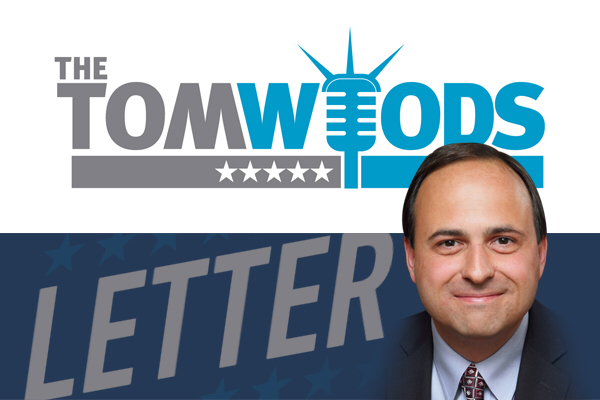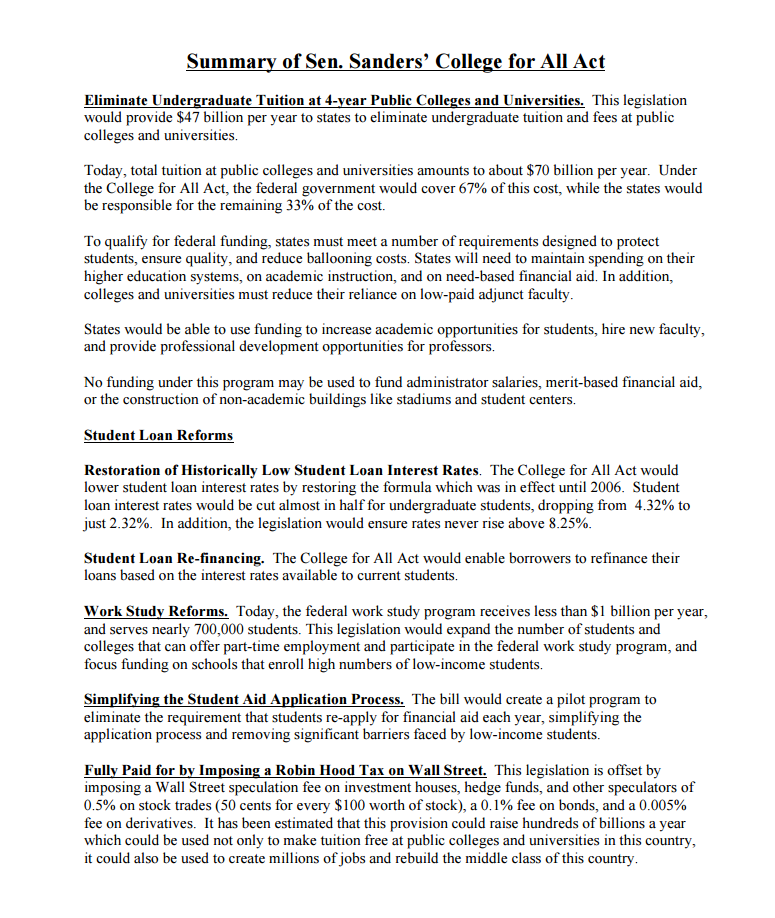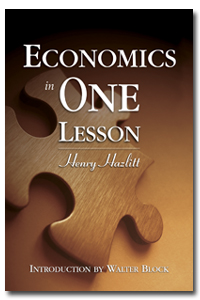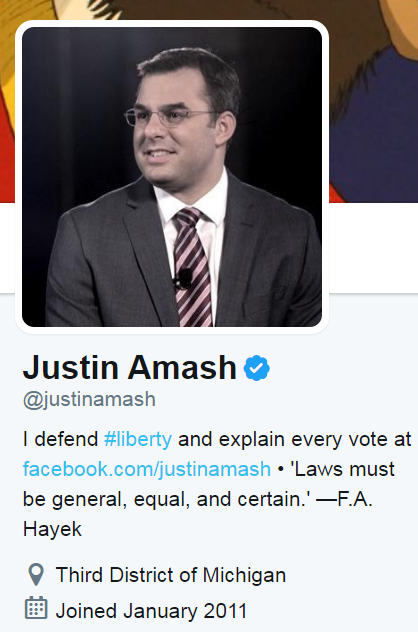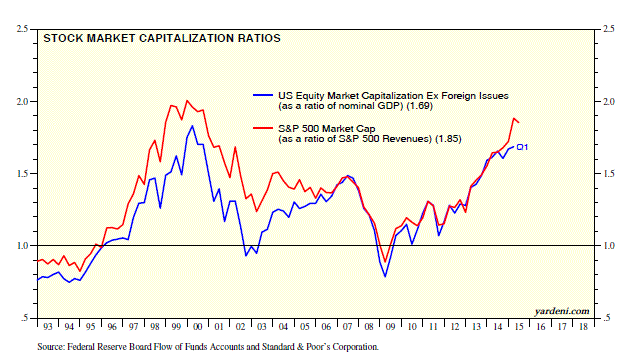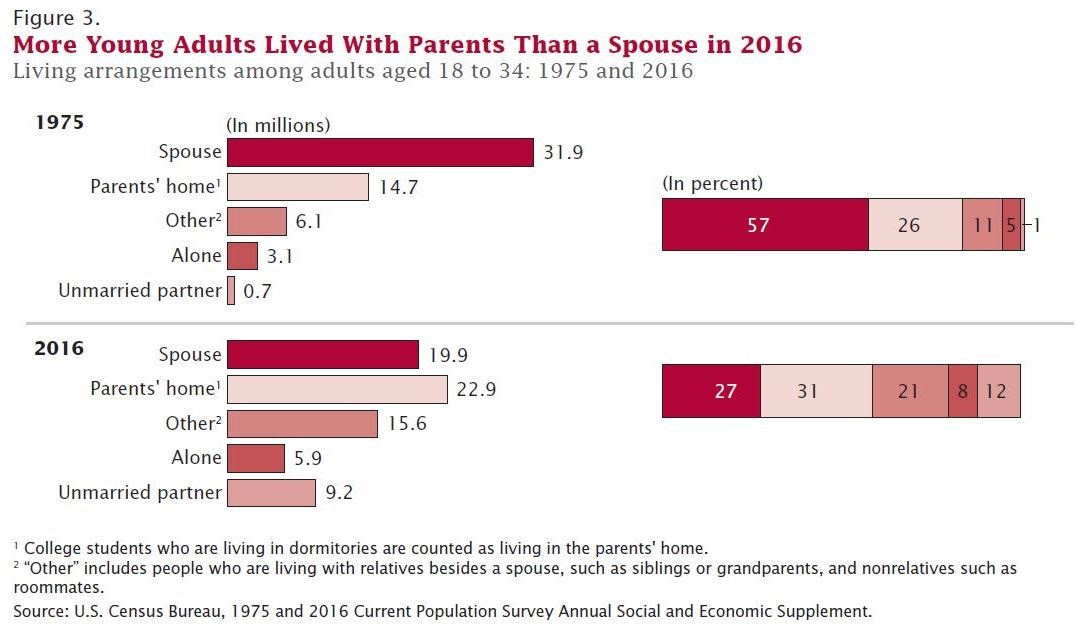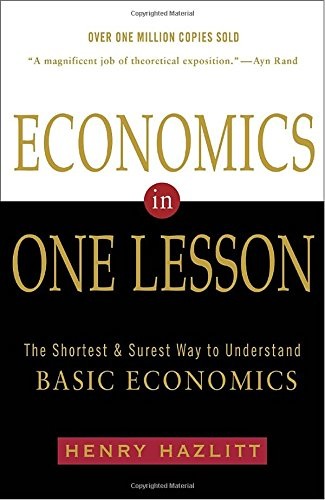|
Recently declassified documents reveal that the National Security Agency (NSA) regularly violated privacy protections supposed to protect Americans incidentally caught up in surveillance of foreign targets, drawing a stinging rebuke from the nation’s intelligence court. This resulted in the improper unmasking of the identities of U.S. citizens, some of whom weren’t in direct contact with the foreign targets of the surveillance, during the final years of the Obama administration.
First reported by Circa, the documents show that over 5 percent, or one-in-20 searches of the NSA’s Section 702 database — which gathers internet and phone data but isn’t supposed to target Americans — failed to comply with the standards established by the Obama administration in 2011. The so-called minimization rules require NSA agents to "mask" the identity of Americans who conversed with or were mentioned by the foreign targets of the agency’s surveillance. The Foreign Intelligence Surveillance Court (FISA) said the violations, which were only disclosed by the Obama administration in October 2016, pose "a very serious Fourth Amendment issue" and blamed an “institutional lack of candor” on the NSA’s part for its failure to inform the court about the extent of the violations sooner. Civil libertarians have also expressed outrage and the reports, with the ACLU’s legislative counsel noting a “shocking lack of oversight of these programs.” On April 28, 2017 — after the FISA court document was released — the NSA halted some collection of intelligence under Section 702 that were "about" surveillance targets and focus its efforts on direct communications directly involving foreign targets. While the total number of violations has been redacted from the reports shown to Circa, for a sense of scale former intelligence chief James Clapper’s testimony before Congress on the matter he said that nearly 2,000 Americans were unmasked in 2016. Clapper’s colleague in the Obama administration, former national security adviser Susan Rice, declined to testify about reports that she unmasked the identities of people connected to Donald Trump’s campaign or transition team. The authority to collect intelligence under Section 702 will be facing even more congressional scrutiny soon — it’s up for re-authorization at the end of the year and could be the target of reforms or a push to discontinue it altogether. Sen. Rand Paul (R-KY) has pushed to modify Section 702 in the past, and said on Fox News that the apparent violations of the unmasking process would represent "an enormous abuse of power." Tell your reps what they should do about NSA surveillance and unmasking using the Take Action button. — Eric Revell (Photo Credit: Public Domain) Source: https://www.countable.us/articles/559 Follow libertyLOL on Countable.us to see more of our comments on current Bills and Resolutions. Also, check out more Analyses here. Follow libertyLOL on your favorite social media sites:FacebookYoutube Tumblr Pintrest Countable: Government Made Simple Steemit blog on a blockchain Patreon Gab.ai libertyLOL's Liberty Blog RSS Feed We also run a couple twitterbots which provide great quotes and book suggestions: Murray Rothbard Suggests Tom Woods Suggests Jason Stapleton Suggests Progressive Contradictions MORE FROM LIBERTYLOL:
0 Comments
By now you've probably heard about the hoax that Peter Boghossian and James Lindsay perpetrated on an academic journal called Cogent Social Sciences.
They submitted an absurd paper, which they say they went out of their way to make sure made absolutely no sense at all, and got it accepted. Warning: what follows is not suitable for children or work. The paper, called "The Conceptual Penis as a Social Construct," begins: The androcentric scientific and meta-scientific evidence that the penis is the male reproductive organ is considered overwhelming and largely uncontroversial. Here's a paragraph from its concluding section: We conclude that penises are not best understood as the male sexual organ, or as a male reproductive organ, but instead as an enacted social construct that is both damaging and problematic for society and future generations. The conceptual penis presents significant problems for gender identity and reproductive identity within social and family dynamics, is exclusionary to disenfranchised communities based upon gender or reproductive identity, is an enduring source of abuse for women and other gender-marginalized groups and individuals, is the universal performative source of rape, and is the conceptual driver behind much of climate change. This makes no sense, of course. But check out this passage, which is even loopier: Inasmuch as masculinity is essentially performative, so too is the conceptual penis. The penis, in the words of Judith Butler, “can only be understood through reference to what is barred from the signifier within the domain of corporeal legibility” (Butler, 1993). The penis should not be understood as an honest expression of the performer’s intent should it be presented in a performance of masculinity or hypermasculinity. Thus, the isomorphism between the conceptual penis and what’s referred to throughout discursive feminist literature as “toxic hypermasculinity,” is one defined upon a vector of male cultural machismo braggadocio, with the conceptual penis playing the roles of subject, object, and verb of action. The result of this trichotomy of roles is to place hypermasculine men both within and outside of competing discourses whose dynamics, as seen via post-structuralist discourse analysis, enact a systematic interplay of power in which hypermasculine men use the conceptual penis to move themselves from powerless subject positions to powerful ones (confer: Foucault, 1972). The two peer reviewers gave the paper very high marks, and accepted it with minor changes. Everyone had a good laugh about the whole thing when the news of its publication broke, given that real papers in "gender studies" are often so ridiculous that it would be difficult to distinguish them from a hoax paper like this one. Now "gender studies" is not a discipline you'd think normal people would be at pains to defend, given its obviously ideological origins (try dissenting from "gender studies" preconceptions and see what happens to you), heavy politicization, and overall nuttiness. Of course, plenty of people on the left, and even the odd libertarian, have leapt to the defense of gender studies in the wake of this hoax. Why, Cogent Social Sciences is a pay-to-publish journal of no significance, and this incident shouldn't be used to undermine gender studies as a discipline! I'll be a sport and concede that point for the sake of argument. Even still, who in his right mind could defend the various leftist "studies" departments in the face of the authentic articles they publish? Here are a couple of real, non-hoax articles, drawn from the copious examples to be found via the heroic New Real Peer Review Twitter account: By dressing in male clothing for the first time in a public space, I challenged the daily heteronormative idea of gender while shattering my own self-identity. The gender constructions and guidelines that were socially taught to me throughout my life were broken when I put on a fake beard. -- Caitlin Greaf, "Drag Queens and Gender Identity" From the abstract for "Breathing Matters: Feminist Intersectional Politics of Vulnerability": Breathing is not a common subject in feminist studies. Breathing Matters introduces this phenomenon as a forceful potentiality for feminist intersectional theories, politics, and social and environmental justice. By analyzing the material and discursive as well as the natural and cultural enactments of breath in black lung disease, phone sex work, and anxieties and panic attacks, Breathing Matters proposes a nonuniversalizing and politicized understanding of embodiment. In this approach, human bodies are conceptualized as agential actors of intersectional politics. Magdalena Górska argues that struggles for breath and for breathable lives are matters of differential forms of political practices in which vulnerable and quotidian corpomaterial and corpo-affective actions are constitutive of politics. Set in the context of feminist poststructuralist and new materialist and postconstructionist debates, Breathing Matters offers a discussion of human embodiment and agency reconfigured in a posthumanist manner. I could go on endlessly. So color me not worried that an otherwise worthy discipline has been unjustly maligned by a hoax paper. The actual papers seem just as hoax-like as the hoax paper, so much so that I doubt many people could even tell the difference. On the other hand, maybe it's good that left-wing academics speak and write this way -- no one on God's green earth will be able to understand a word they're saying, and that's just how I like it. Meanwhile, by the way, you could do something truly subversive by learning real U.S. history, economics, and other subjects from me and other folks you can trust, who use heteronormative and sexist constructs like reason and facts in support of their arguments: LibertyClassroom.com - Tom Woods Follow libertyLOL on your favorite social media sites:FacebookYoutube Tumblr Pintrest Countable: Government Made Simple Steemit blog on a blockchain Patreon Gab.ai libertyLOL's Liberty Blog RSS Feed We also run a couple twitterbots which provide great quotes and book suggestions: Murray Rothbard Suggests Tom Woods Suggests Jason Stapleton Suggests Progressive Contradictions MORE FROM LIBERTYLOL:
We all want to care about others. The 'Free College for All' narrative is rooted in the idea that we take care of others. But are we taking care of others by stealing from the masses to pay for College? What happens to the price of college if our subsidies for it increase? The price of college has increased DUE TO the persistent governmental interference in the market.
Politicians like Bernie Sanders can't wait to get in front of microphones and discuss how 'moral' it is for us to provide these services. Imagine that. It's moral to steal from your neighbor to provide college for free to others. But the moral argument should be made for those that are getting stolen from and for the future generations that have to pay the price of our generation's policies. The image below is the cliffnotes version of Bernie Sanders' "College For All" Act, basically just marketing. The full version of Bernie's plan (51 pages) takes some time to figure out how his policy proposal works.
My friend loves the idea, I responded to him that if we understand economics, then we know what we can expect to follow:
Throw 'free' money at colleges and then be amazed at why college costs increase and then throw more money at college and then be amazed so we throw more money at colleges and then costs increase so we have to throw more money... Each time we find that it is the government that is increasing the costs of college making it MORE necessary for government to get MORE involved and making it HARDER for families to afford it... Dangerous cycle. Government begets more government and creates more problems when it tries to solve problems. I offered to read the entirety of Sanders' bill if he would read Economics in one lesson, a quick read. 
FREE BITCOIN! When you buy $100 Bitcoin through this link, you'll earn $10 of FREE Bitcoin! (IMMEDIATE 10% ROI!)
His response? I am quite familiar with the Mises Institute and Hazlitt's One Lesson. However, I'm cautious of lessons from the 1940s! You and I just don't agree on what's important or of value.
"What's important or valuable" isn't free college and free health care. It's the kind of world and indebted nation you're leaving to your children. They own this debt that we're ignoring because we aren't mature enough to live within our means. But we can't do that because politicians use 'emotions' to keep themselves in power, at our expense.
Our politicians are like children who keep passing the buck off on others because they won't be in office when it fails and promising 'free' stuff gets votes. Economics is Timeless
If we were in the stone age, Economics in One Lesson would still apply. Hazlitt doesn't talk about the results of what happened in the 1940s, he talks about the things we are doing today.
Chapter 1: The Lesson: The art of economics consists in looking not merely at the immediate hut at the longer effects of any act or policy; it consists in tracing the consequences of that policy not merely for one group but for all groups. Chapter 2: The Broken Window fallacy (economy runs on consumption), basically the reason The Fed is drowning us in free money and zero% interest rates. Chapter 3:The Blessings of Destruction fallacy explains why economies boom during wartime and why the US is at perpetual war because peace isn't profitable. (Let me know if this seems relevant today) Chapter 4 Public Works mean Taxes- talks about the ills of an economy when taxation is used for public works compared to the free markets ability to do the same without taxation. Not applicable? 40% of the US GDP today is money spent by the US Government. Chapter 5: Taxes Discourage Production - Read this chapter with the understanding that EVERYTHING today is taxed. And before it's taxed, the money you've gotten through labor (income) is taxed. The stuff you made is taxed from many ingredients that were taxed and the people who bought it from you were taxed when buying it. Rewritten today, this chapter is it's own book. Chapter 6: Credit Diverts Production- "Actually, you know what," I tell my friend, "feel free not to read it because it's written in the 40's. But that's a cop-out". He's got children, it's his and my job to make the world better for them. If we can't read one book and challenge me to read something that might challenge my worldview and then follow on with an adult conversation, then we both can't continue this virtue-signaling where we think we're being moral and 'looking out for folks'. Government growth and deficit-spending hurts those that can't voice an opinion against it - Our Children
His response will likely be that I don't value Free Education or Free Healthcare or Free unlimited safety nets for everyone. He'd think I was immoral for not supporting it. Quite the opposite. The moral argument is to remove government obstacles to the free market and charity to support these causes.
Prices are high where government interferes and over-regulates the most. Why do our health care costs rise while Breast Implants and Lasik eye procedure costs plummet (while the quality increases)? One is highly regulated by the government, the other is not. The Free Market is competing for people's dollars so costs go down and quality goes up. Additional Reading
How Government Regulations Made Healthcare So Expensive
Economic interventionism Third-Payer Problem, AKA "If I go to a restaurant and my tab is picked up by someone else (Insurance Company), then I'm ordering the steak". PRICE CEILINGS AND PRICE FLOORS, a CENGAGE lesson in microeconomics. Rent-seeking - Wikipedia Follow libertyLOL on your favorite social media sites:FacebookYoutube Tumblr Pintrest Countable: Government Made Simple Steemit blog on a blockchain Patreon Gab.ai libertyLOL's Liberty Blog RSS Feed We also run a couple twitterbots which provide great quotes and book suggestions: Murray Rothbard Suggests Tom Woods Suggests Jason Stapleton Suggests Progressive Contradictions MORE FROM LIBERTYLOL:
There is Still Zero Evidence
I should begin by saying that I hope an independent investigation is conducted in the Trump/Russia connection. Not because I think it will yield any type of actionable results, quite the opposite.
Ever since the election the medias actions have been led by mass hysteria, easily disproven speculation, and the partisan message of "Today is the day that we've got just the thing that will impeach President Trump!" I'm not sure why people keep falling for it. Let's see some evidence. It's true? Impeach him, draw and quarter him, hang him whatever. Until then, do some investigative reporting instead of subjective speculating ( I'm looking at you Rachel Maddow) Today's News
House Democrats will use an obscure legislative procedure known as a discharge petition on Wednesday to try to force a vote on a bill that would create an independent commission to investigate Russia’s meddling in the 2016 election. Unless more Republicans are persuaded to join calls for an independent commission, the longshot tactic is the best chance Democrats have to bring such a bill up for a vote in Congress.
What's a Discharge Petition?
Discharge petitions are the legislative equivalent of the "Advance to GO, Collect $200" Monopoly card — they allow a bill to skip past hearings, committee votes, Ventnor Avenue, and all the rest on the way to a final vote on passage. Lawmakers in both the House and Senate have discharge petitions at their disposal, though the process works a little differently in each chamber of Congress.
In the House, a discharge petition can only be filed if the bill it pertains to has been idle for 30 legislative days, at which point supporters must gather the signatures of a majority of House members (218 normally but 216 now due to vacancies) in order to force the committee to release the bill. If supporters have met that signature threshold, and the committee doesn’t act within seven days, then the bill can be brought to the House floor for a vote. Things get a little more complex in the Senate, where discharge petitions can be used for normal bills in addition to executive branch and judicial nominations (like for a Supreme Court vacancy). Legislation that’s the focus of a discharge petition can still be blocked by the filibuster, so supporters must have the backing of at least 60 Senators in the process to prevent it from being stopped. What Does the Bill do?
Rep. Eric Swalwell’s (D-CA) Protecting Our Democracy Act, the bill that would be brought up for consideration if the discharge petition is successful, is pretty straightforward.
It would create an independent, 12-member commission similar to the one created after the 9/11 attacks that’d have the ability to interview witnesses, get documents, issue subpoenas, and hear public testimony. Once its investigation is complete, the commission would provide Congress and the president with a final report offering recommendations within 18 months of the bill’s enactment. The commission would be made up of prominent U.S. citizens who’ve worked with distinction in government, law enforcement, the military, law, intelligence, elections, foreign affairs, and cybersecurity. No federal officials or employees would be eligible to participate, and members would be chosen by congressional leadership from both parties. Will it Work?
It’s pretty unlikely, as it needs 216 supporters to get a majority in the House and only 200 lawmakers have announced their support for it. That being said, if more Republicans join their two colleagues who’ve cosponsored the Protecting Our Democracy Act it just might have a chance to reach the floor.
If it works, it'd be only the fourth time in the modern era that a discharge petition has been successfully used. Discharge petitions were used to approve a gun-rights bill backed by the NRA in 1986, the McCain-Feingold campaign finance reform bill in 2002, and by the House in 2015 in an early attempt to reauthorize the Export-Import Bank. Source https://www.countable.us/articles/513 Follow libertyLOL on your favorite social media sites:FacebookYoutube Tumblr Pintrest Countable: Government Made Simple Steemit blog on a blockchain Patreon Gab.ai libertyLOL's Liberty Blog RSS Feed We also run a couple twitterbots which provide great quotes and book suggestions: Murray Rothbard Suggests Tom Woods Suggests Jason Stapleton Suggests Progressive Contradictions MORE FROM LIBERTYLOL:
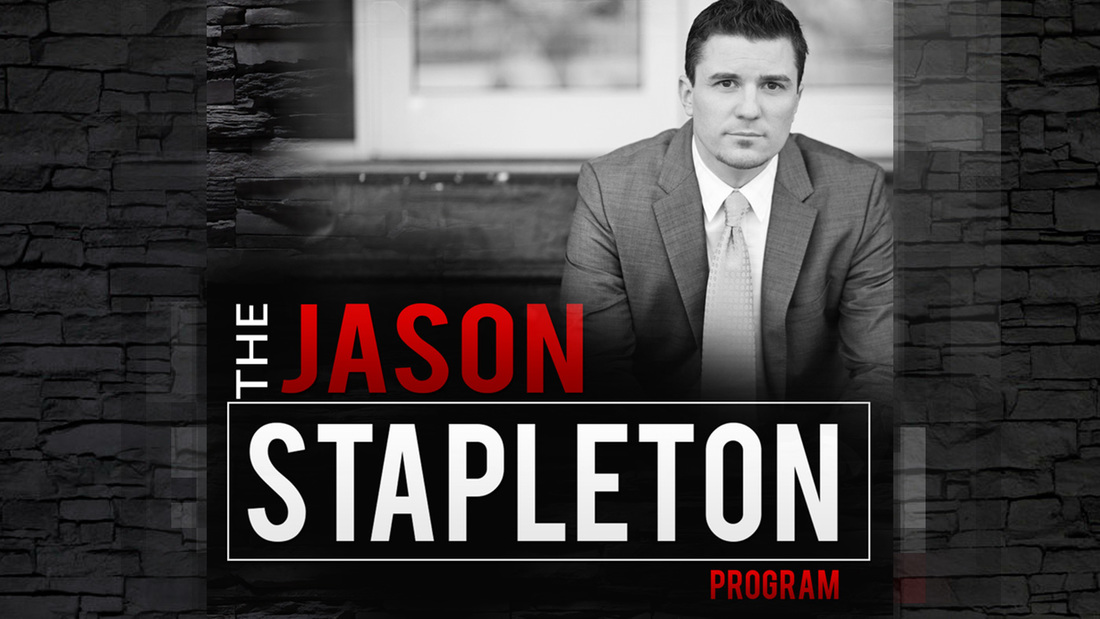
A snippet from The Jason Stapleton Show YouTube Description:There are winners and losers. Jason Stapleton Program explains. Don't forget to follow the Unofficial Jason Stapleton Recommended Reading List Twitterbot@JasonSuggests Follow libertyLOL on your favorite social media sites:FacebookYoutube Tumblr Pintrest Countable: Government Made Simple Steemit blog on a blockchain Patreon Gab.ai libertyLOL's Liberty Blog RSS Feed We also run a couple twitterbots which provide great quotes and book suggestions: Murray Rothbard Suggests Tom Woods Suggests Jason Stapleton Suggests Progressive Contradictions MORE FROM LIBERTYLOL:
"Single acts of tyranny may be ascribed to the accidental opinion of the day, but a series of oppressions, begun at a distinguished period, and pursued unalterably through every change of (politicians), too plainly prove a deliberate and systematic plan of reducing us all to slavery." -Thomas Jefferson
The problem with the news today is they no longer provide an objective look at what happened. Instead, they provide a biased point of view and then tell you what to think and how to feel about it.
Instead, I'll cover two competing views on Republican Representative Justin Amash's YES vote on the American Health Care Act (AHCA) and allow you to make up your own mind. Haven't read it yet? I'll post it at the bottom of the article in an effort to declutter. We'll first look at his decision and validate it against our Principle of "Constitutionalism". This allows us to determine whether the new AHCA bill is even valid, legal or constitutional. The second way to critique Representative Amash's decision and look at his reasoning. We can then determine if the new AHCA incrementally takes us 'Closer to Liberty' or 'Closer to Tyranny'. Is AHCA even Constitutional?
There is no gray area on this question. The AHCA Bill is either constitutional or it's not. If it's not, Rep Amash took an oath to uphold the constitution and failed by voting YES. A NO vote on an unconstitutional bill is a constitutional vote. A YES vote for an unconstitutional bill is an unconstitutional vote.
The argument from those who uphold this principle of Constitutionality will claim that we even if AHCA is incrementally better than ObamaCare, his vote on a law that violates the Constitution should be an automatic NO. They would also claim that just because this unconstitutional law is slightly better than the previous unconstitutional law, Libertarians have never been about voting for the lesser of two evils, Quite the opposite. So is AHCA unconstitutional? Again, I won't tell you what to think but reading more on it should color your favorability (or not) or Rep Amash's vote. No one has ever been able to clearly articulate to me why the Robert's precedent made ObamaCare constitutional so I'm not the guy to give legal advice. Might I suggest a couple great articles: Is Ryancare’s ‘Lapsed Coverage’ Surcharge Unconstitutional Under Roberts’s Obamacare Precedent? Why I voted NO on the American Health Care Act - Representative Andy Biggs 
FREE BITCOIN! When you buy $100 Bitcoin through this link, you'll earn $10 of FREE Bitcoin! (IMMEDIATE 10% ROI!)
Does AHCA Take us Closer to Liberty or Closer to Tyranny?
Those who support Rep Amash's YES vote because "AHCA is incrementally better than ObamaCare" will typically claim that they are 'realists' in the room. They understand that we won't wake up tomorrow living in a libertarian society with a perfectly Free Market Health Care system. They argue that libertarians have to do what we can, when we can, to reduce the size of government, even if incrementally.
Rep Amash knows that a NO vote doesn't repeal ObamaCare, it's the law of the land. Realistically, he notes, a YES vote can at least get us started in a new direction, one towards Liberty. This might be true even though I believe AHCA to be a monstrosity of legal code atop another monstrosity of legal code. The problem is that for for the past seven years, Republicans have run for Congress on a commitment to repeal Obamacare. And now, even though they claim this is it, they are only amending ObamaCare, retooling the subsidies, taking out the individual mandate, and ensuring the government is the one who maintains power of the health care market. The AHCA is bad politics for the Republicans and bad policy for Amash's name to be tied to. Why risk putting your name on a slightly better turd sandwich than the one you inherited? The one they all got elected on promising to repeal? The one they passed very clear Repeal Legislation on more than 50 times when they knew President Obama would just veto? It seems to me that allowing the ill-effects of government intervention into the health care market only empowers those calling for Single Payer, a death knell for individual liberty and one that ensures increased scope of government and decreased quality of product. My principles of Limited Government and Free Markets refuses to support AHCA. Part of me cheers knowing that it's not likely to pass the Senate in it's current form. Conclusion
This is a tough one. I'd love to hear your thoughts below on whether your support the AHCA because 'at least it's a slightly better turd sandwich' or if you'd prefer a NO vote on it because 'Repeal ObamaCare or NOTHING'.
Would you be happy living with ObamaCare for another few years in an attempt to try to get full repeal? I'm not optimistic that any power given to the government is one that you'll see them give back without a long fight and without multiple electoral consequences for politicians. Rep Justin Amash's Response
This is not the bill we promised the American people. For the past seven years, Republicans have run for Congress on a commitment to repeal Obamacare. But it is increasingly clear that a bill to repeal Obamacare will not come to the floor in this Congress or in the foreseeable future. Follow libertyLOL on your favorite social media sites:FacebookYoutube Tumblr Pintrest Countable: Government Made Simple Steemit blog on a blockchain Patreon Gab.ai libertyLOL's Liberty Blog RSS Feed We also run a couple twitterbots which provide great quotes and book suggestions: Murray Rothbard Suggests Tom Woods Suggests Jason Stapleton Suggests Progressive Contradictions MORE FROM LIBERTYLOL:
Latest Fad: Indexing
Indexing has become the hottest trend in decades. Over the last two years, investors have purchased over 924 billion dollars in index funds. The largest index of all is the S&P 500 and is actively managed by the S&P 500 Committee at Standard and Poor’s. The S&P 500 is a market-weighted index; this means the bigger the company market capitalization, the larger percentage holding in the S&P 500 Index. The largest five stocks account for about 12% of the Index and the top ten stocks account for 20% of the index. On average, between ten and forty stocks are replaced every year. The current concern with indexing is that everyone is doing it. For example, in 1999 the trend was to buy Cisco, Intel, Yahoo and Lucent. Today’s indexing trends are buying the same type of tech stocks such as Apple, Google, Facebook, Microsoft and Amazon, the top five companies in the index. We have seen some research that indexing beats over 90% of the market over a ten to fifteen year period. How is it possible that a committee at Standard and Poor’s outwits 90% of the active fund managers? Either they are the smartest people in the world or something else is affecting the results. One answer is that they have about a small fee advantage. The more likely answer is that the S&P 500 has become the benchmark and most managers are either now indexing or shadowing the index. We are witnessing a replay of the Nifty 50 of the 1960s and the 1999 Tech Bubble, as market cap weighted indexes are all essentially utilizing the same fifty stocks. Indexing Fails in Bear Markets The effect to all of this is that a very substantial portion of the entire world is buying the same 500 stocks. Recent research found in contrast to the success in Bull Markets that in bear markets, index funds underperformed. Indexes were able to beat active managers between 34% - 38% of the time. In the next bear market, indexing will likely fare worse than those numbers because there is so much money concentrated in index funds. Despite the popularity of this latest fad, I believe over the next five years active managers will outperform the indexes market. Savvy investors will their funds with professional active managers, like MaxOut Savings Advisors. Valuation Matters Listeners of the MaxOut Savings Show know that we are very concerned about valuations in the stock market. One number that has been of particular concern is the price-to-sales ratio. As can be seen by the red line in the graph below the only time in recent history the price-to-sales number has been this high was in the 1999 Tech Bubble. The Price-to-Earnings ratio the number is not as close to the bubble peak but price-to-sales is. The likely reason for this discrepancy is that S&P 500 companies are over-earning by cutting costs and not investing in R&D or new plant and equipment. In effect, they are maximizing short-term profits at the expense of long-term growth. The second line in the chart is the total equity market capitalization divided by the GDP. This number is also approaching the 1999 Tech Bubble high mark. The total market cap-to-GDP valuation parameter has been mentioned as a market valuation concern by the Federal Reserve recently. The bottom line the stock market is very expensive and priced for perfection. Signs point to a market correction, are your retirement assets professionally managed to help protect against losses during a market correction?
Notice we are at 1999 Tech Bubble peaks in both valuation parameters.
Jobless Generation The Census Bureau chart below shows a huge jump in the percentage of young people living at home with their parents. In the United States today, there are more young adults living with their parents than there are young adults living with a spouse. We have had a generation trapped at home living with parents, a sad commentary on the jobless recovery we have had since 2008. The Federal Reserve and Barrack Obama were able create an asset bubble, but no jobs. Going forward, we should concentrate on job growth, not asset prices. We should define success as providing a future for our children. As we all weather this period of economic uncertainty, it is more important than ever to enlist a financial advisor. Don’t leave your retirement savings at undue risk!
Tax Bill Outlook
We are starting to make real progress on the tax bill and Obama care. Expect to see some sort of deal to repeal Obamacare in the next couple of weeks in the House. It will then be sent to the senate where we could see more changes before it passes. The Trump Tax proposal is a great start. The cut in corporate taxes by 50% and programs to repatriate the almost $2 trillion in corporate cash overseas is very bullish for jobs in the economy. The middle class tax cuts will help middle class families. The Trump proposal is somewhat different from the House proposal, put forth by Paul Ryan. Ryan would like a Boarder Adjustment Tax (BAT) and wants to eliminate the carried interest provision. Both will be very bullish for the US economy. It will take at least 5 to 6 months to pass a tax bill; in the interim, expect a stock market correction. Follow libertyLOL on your favorite social media sites:FacebookYoutube Tumblr Pintrest Countable: Government Made Simple Steemit blog on a blockchain Patreon Gab.ai libertyLOL's Liberty Blog RSS Feed We also run a couple twitterbots which provide great quotes and book suggestions: Murray Rothbard Suggests Tom Woods Suggests Jason Stapleton Suggests Progressive Contradictions MORE FROM LIBERTYLOL:
1958: Officer Bill gives Jimmy a stern lecture about listening to his parents and not running away from home, then brings him back. Jimmy's mom is so grateful, she bakes a pie and brings it to Officer Bill's house the next day.
2017: Unsupervised juvenile observed at 1300 hours. Juvenile taken into custody. Arrest warrant issued for negligent parents. SWAT team dispatched to residence. Front door accessed with battering ram. Family dog shot. Female suspect pepper sprayed. Male suspect tazed three times for refusing to immediately comply with orders. Male suspect then handcuffed and tazed again. After spending the night in jail, the parents are arraigned. The father is charged with disorderly conduct and resisting arrest and is sentenced to 30 days in the County Jail. The mother pleads to endangering the welfare of a child and gets 1 year probation. Jimmy is sent to foster care where he is molested for 5 years before committing suicide. Jimmy Kimmel's kid had a hole in the heart and went to LA Children's Hospital. World renowned. Private. Non-profit funded by donations only. Doesn't even touch ObamaCare/TrumpCare.
No matter what the government does, it's adding a monstrosity of regulation on top of a monstrosity of regulation and prices will only rise. I donated to LA Children Hospital when I saw Kimmel's story because I think it's important that we prove that the private, free market can cover these woes, while the government could give two shits about costs. If stories like Jimmie Kimmel's tear at your heartstrings, like it did mine, it's immoral to sit by and think that government will take care of us. More than 85% of CHLA donations goes to care(higher administrative costs than a typical charity bc it's a hospital vice a 'fundraising' charity) whereas only half of my tax money trickles down into a health benefit for someone. Put your money where your mouth is. These large influxes of private donations make headlines and prove the government 'assistance programs' aren't necessary. Donate: https://secure1.chla.org/site/Donation2?df_id=1480 Administrative costs: http://m.csmonitor.com/Business/Guide-to-Giving/America-s-Top-50-charities-How-well-do-they-rate
They say that authors are not the best judges of their greatest work. Only the wisdom of time can determine that. This seems especially true of Henry Hazlitt. Seventy years after he wrote Economics in One Lesson, the book is still going strong. Most recently, it was recommended by Mike Rowe:
Just last week, I heard Mike speak. He loves the real world – and I can understand his conviction of the sheer fakeness of the world imagined by politicians. Hazlitt shared that same view, and this comes through in the text. This brings to mind one of the special moments in my life. Before his death in 1993, I sat in the back of a limousine on the way to dinner with Henry Hazlitt and discussed the book. I asked him if he felt pride that his book was still a best seller. He said that he did not, since he didn’t think it was very good. A book he felt genuinely proud of was Foundations of Morality – probably one of his least known works. Pushed Out by the New York Times Before starting his next job, Hazlitt decided to take a few weeks to write a primer on basic economics. His attitude is understandable when you consider the context in which Lesson was written. For twelve years, he had been writing daily editorials, mostly unsigned, for the New York Times. He was also writing book reviews under his own name for the Sunday paper. He was aware of the ideological conflicts at the paper. There were many partisans for the New Deal. He was not among them. But his status was protected there because of the desire for diversity of opinion. But as the war was ending, the paper had to make a choice. Powerful elites had gathered to cobble together a post-war planning apparatus that included a world bank and a new system of monetary management. It was the new dollar standard – one not entirely divorced from gold, but the US dollar would be the only currency tied to gold. The rest of the developed world would tie their currencies to the dollar. Hazlitt knew that it couldn’t work. The US was not in a position to determine the fiscal policies of other nations. They would not feel the discipline that gold would impose and would be incentivized to spend freely without facing downward currency pressure. This would ultimately cause gold outflows from the US as the demand for gold would rise, even as its dollar price was fixed. This would prompt unsustainable gold outflows. The imbalances would cry out for correction and the whole system would collapse. Fired (Sort of) Hazlitt explained this day after day. But as time went on, it became ever more clear that the Bretton Woods system was a foregone conclusion. The paper would have to adjust. The editor brought Hazlitt in and told him to stop editorializing against it. Hazlitt complied but also began to tidy his desk to prepare his resignation. He left in 1946. His next job was writing for Newsweek, while also helping Leonard Read get the newly formed Foundation for Economic Education going. He had also become good friends with Ludwig von Mises, and eagerly anticipated serving as his literary champion. It is doing for us in 2016 what it did for people in 1946: teaching the fundamental truths.But before starting his new job, Hazlitt decided to take a few weeks to write a primer on basic economics. After all, it was what the world needed now. He wrote it in a white heat, putting on paper all the apparatus he carried in his head. He avoided hard theory but jumped straight to the large lesson: economics is about the effects of policies on all groups over the long run, not isolated groups in the short run. He applied it as broadly as possible to all existing political and economic controversies. Why does a book become a wild best seller? The title. The timing. The clarity of content. The benefit it provides to the reader. There are many reasons, and, for whatever reason, it all came together for Hazlitt in this one book. It would secure his reputation. To his private dismay, it would be the text that would define his legacy. Since Rowe recommended it, FEE.org has been blowing up with hits and downloads of the book. Good. It is doing for us in 2016 what it did for people in 1946: teaching the fundamental truths. And given the way things are going in this election, which has provided frequent occasions for head-slapping for many months now, it is once again serving its intended purpose. Economics must be taught anew in every generation. Hazlitt continues to be the world’s teacher. Bretton Woods is long dead. But this book lives on.

Jeffrey TuckerJeffrey Tucker is Director of Content for the Foundation for Economic Education and CLO of the startup Liberty.me. Author of five books, and many thousands of articles, he speaks at FEE summer seminars and other events. His latest book is Bit by Bit: How P2P Is Freeing the World. Follow on Twitter and Like on Facebook. Email. Tweets by @jeffreyatucker This article was originally published on FEE.org. Read the original article. MORE FROM LIBERTYLOL:
|
Search the
libertyLOL Archives: Archives
December 2020
Search and Shop on Amazon.com!
Tom Wood's Liberty Classroom"Get the equivalent of a Ph.D. in libertarian thought and free-market economics online for just 24 cents a day...."
At Liberty Classroom, you can learn real U.S. history, Western civilization, and free-market economics from professors you can trust. Short on time? No problem. You can learn in your car. Find out more! |


